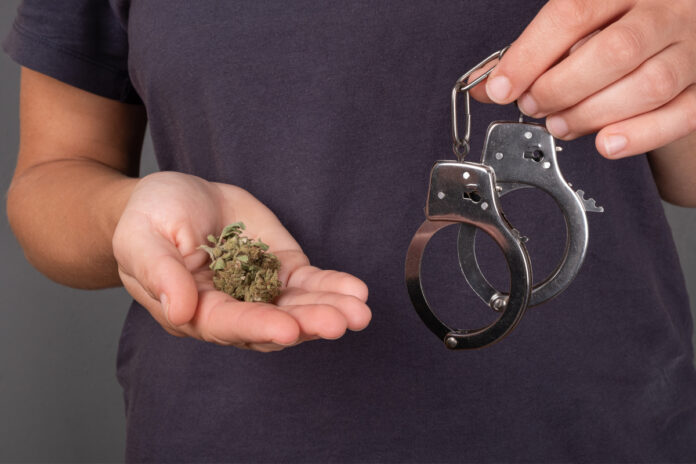WASHINGTON, D.C. – The Last Prisoner Project (LPP) and The National Association of Criminal Defense Lawyers (NACDL) launched a new effort aimed at helping individuals negatively impacted by the war on drugs.
The Cannabis Justice Initiative is focused on providing clemency for people who have been penalized for cannabis violations that no longer are illegal in their state. LPP and NACDL also are pursuing broader cannabis policy change at local, state, tribal, and federal levels.
“Clemency, which can include sentence commutation and pardons, expungement, dismissal of prior convictions, and record sealing are all vehicles by which an individual’s rights can be restored,” NACDL Executive Director Norman L. Reimer told mg.
Although usage rates are similar, Black and Latinx individuals are much more likely to be arrested for cannabis-related violations than Whites. The disparity cannot be dismissed simply as “rogue” cops being overzealous when it seems every layer in the criminal justice system is advancing systematic racism. Research shows prosecutors are twice as likely to pursue a mandatory minimum sentence for Black offenders when compared to White offenders charged with the same offense.
“With the legalization of cannabis sweeping the nation, it’s imperative that state and federal actors prioritize back-end relief for those still suffering under our nation’s unjust and inequitable approach to cannabis policy,” said LPP Executive Director Sarah Gersten. “The Cannabis Justice Initiative will allow Last Prisoner Project and NACDL to scale our efforts to repair these harms by providing the broadest possible relief to individuals senselessly burdened by cannabis-related convictions.”
While the U.S. cannabis industry is rapidly growing in value ($61 billion by some estimates), it is not a tide lifting all boats. A survey from 2017 found only 4.3 percent of cannabis businesses were owned by Black entrepreneurs. While many White Americans are benefiting from the green rush, many Black Americans are still incarcerated for possession charges that no longer are considered illegal in their state.
Reimer is hopeful that widespread clemency efforts could be an effective first step toward creating more equitable opportunities within the cannabis industry.
“These efforts certainly can open opportunities for those who might otherwise be barred from a trade, industry, or profession as a result of conviction,” he said. “And there is absolutely no justification for denying those opportunities to those who suffered criminal records for conduct which is now lawful.”
The Cannabis Justice Initiative will recruit and train pro-bono attorneys to help pursue clemency for those still impacted by past cannabis convictions. Because cannabis laws vary from state to state, LPP and NACDL will potentially have a lot of work on their collective plate. Though Reimer believes they are up to the challenge.
“The Cannabis Justice Initiative will look for opportunities to provide assistance in whatever states provide avenues for relief,” Reimer said. “We will seek volunteers in those venues and beyond to help those who otherwise would not have access to counsel. Training will be tailored to the specific relief sought and the local requirements to qualify for that relief.”
Americans appear ready to move on from the failed policies linked to the war on drugs. NACDL President Chris Adams believes the time is right to reverse the decades-long policies that have yielded little besides unrest and ruined lives.
“The damage wrought by decades of treating drug use and abuse as a criminal legal system matter rather than as a public health matter is immeasurable—lives, families, communities, all destroyed,” Adams said. “This initiative will help right at least some of those wrongs.”











